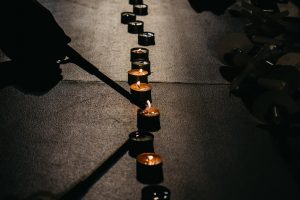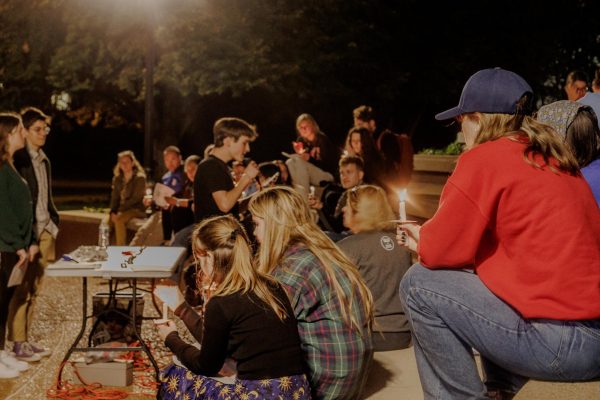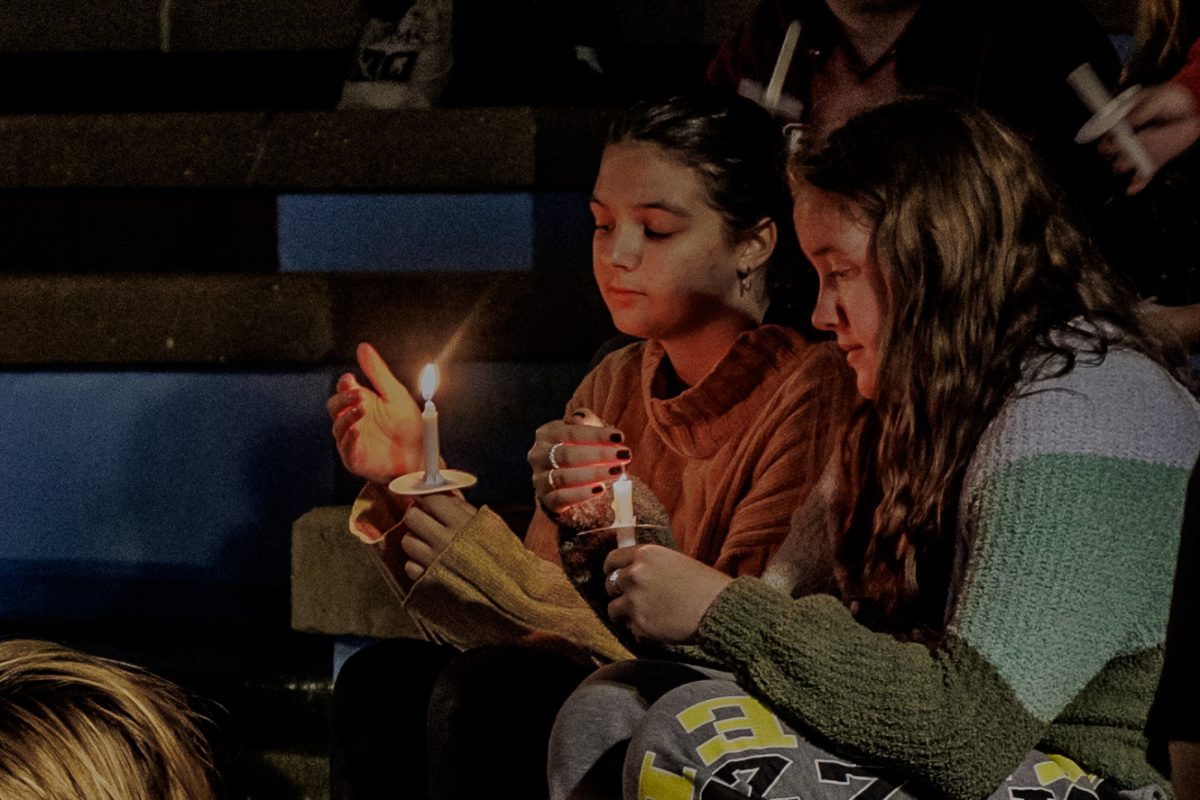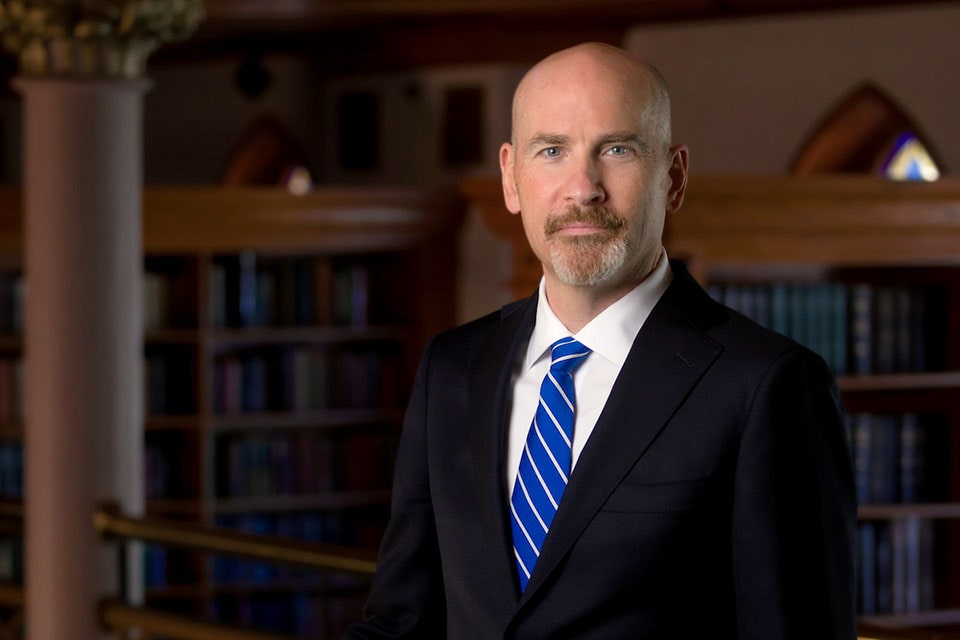Saint Louis University’s Jewish Student Association (JSA) hosted a candlelight vigil at the clocktower on the evening of Oct. 18 to “honor all the lives lost and victims from the recent events in Gaza.” The event was open to people of all faiths and cultures.
The vigil comes 10 days after Israel formally declared war on Hamas. The vigil lasted around five minutes. After JSA gave the attendees candles, various JSA executive board members led people through three Jewish prayers – one for mourning, one for healing and one for peace. They also lit 18 candles in honor of the Hebrew word “chai,” which means life and has a numeric equivalent of 18 in Judaism.
Elliot Meyer, JSA’s president, said they chose three prayers about the lives lost, the lives affected and hopes to end the conflict.
“We realized that we needed to do something to help our community here,” Meyer said. “Our Jewish community, and also our Muslim and Palestinian community, because we’re all part of the SLU community.”
People of Jewish and Muslim faith attended. The crowd of about 30 people also included unaffiliated friends and supporters.
“I’m friends with one of the executive board members and I saw JSA posted something so I thought it would be a good idea to come just because it’s been really disheartening to see everything on the news and social media,” said junior Camille Daugherty.

Rebecca Harris and Isabella Hunt, both juniors, attended the vigil together. Harris is Jewish while Hunt came as a friend and to “support a few other people too since it’s a really hard time for everyone.”
“I came because I’m part of JSA and I’m just here to support and say a few prayers for all the victims with everything going on,” Harris said. “It’s all been really scary.”
Originally, JSA reached out to SLU’s Middle Eastern Student Association (MESA) and Muslim Student Association (MSA) to host a joint vigil. Since MESA and MSA said that vigils are not a part of their tradition, the event became a JSA sponsored event. However, they said they would still extend the invitation to their members.
Maryum Khaja, junior and a co-president of MSA, attended the vigil.
“I attended the vigil to grieve and pray for the countless innocent lives lost in the conflict in Gaza and in Palestine for decades,” Khaja said. “Although we all pray in different ways, I think it is essential that we recognize each other’s pain and come together to acknowledge the value of human life.”
Like many, Khaja said the last few weeks have been very emotional for her. Although candlelight vigils are not traditional for mourning in Islam, Khaja said that she noticed some similarities between the Jewish prayers and Dua, an Islamic form of prayer.
Brianna Rider-Leiner, JSA’s treasurer, helped organize the vigil to help foster unity at SLU and felt it was important for JSA to gather.
“The idea of the vigil is to focus more on uniting the SLU community and mourning all the victims and saying prayers of peace for Israelis and Palestinians and anyone who has been a victim of this tragedy,” Rider-Leiner said.

However, not all JSA members were content with the framing of the vigil. One member, who spoke to the University News on the condition of anonymity, pointed to a lack of communication and transparency from the executive board about what the vigil would entail.
She voiced extreme disappointment when the executive board called for a ceasefire but did not explicitly mention anything about the Israeli hostages held by Hamas.
“If they wanted to be neutral and pray for all victims, then they should have specified that it is our family that was massacred,” the anonymous member said. “Our friends have been drafted to go back. My best friend’s cousin was kidnapped by Hamas. If you’re going to be neutral, then neutrality at the very least requires calling for the release of hostages.”
With various political views about the Israeli government and the war, the executive board is encouraging students to go to the Chabad House at Washington University in St. Louis if that is what they are looking for. The executive board is trying to figure out next steps and says the vigil is a starting point.
“We’re not trying to take away from the nuances or the complexity of it. We are just trying to unite and we just want peace,” Rider-Leiner said.















